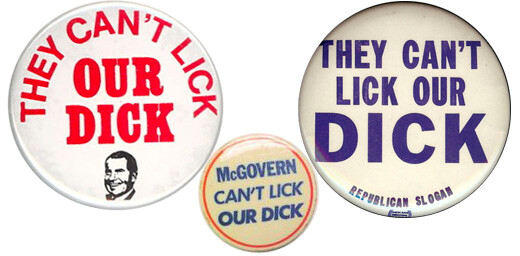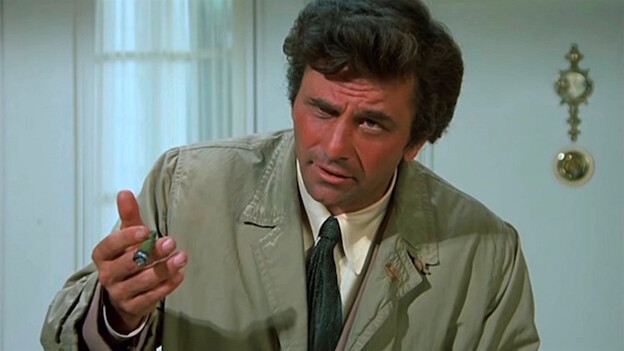First Rule Of Hollywood: Nobody In Charge Knows What They Want

If, perhaps, you haven’t been hanging out in Burbank coffee shops recently, odds are good that you haven’t heard too much talk about what it’s really like trying to break into the film industry. This week, I plan on remedying that for you. Starting today and for the next four days, I’m going to share with you the inside baseball of what I’ve learned from nearly a decade of living in Los Angeles and trying to get a job writing for television, a dream roughly as achievable as becoming the world champion greased-up baboon wrestler.
Before that, though, a few caveats. First, it’s worth noting that I have not broken into Hollywood. I’m like a drunk man pounding on the window of the snow leopard habitat at the zoo, demanding to be let in because I think we’d be best friends – a simile which may or may not come from personal experience. I have, so far, made a grand total of $200 from my screenwriting – all of which came from me being commissioned to write an entire season of an animated webseries that, to my knowledge, never actually got made. The point is, treat my musings here like you would from any has-been that never was: with a grain of salt so large it could supply a KFC for nearly eight minutes.
Don't Miss
Secondly, I’m coming at this from the perspective of someone trying to be a writer. I’d imagine it’s different if you’re trying to break in as an actor or a cinematographer or the guy who smears peanut butter on the roof of Daniel Day-Lewis’ mouth so it looks like he’s talking.
So, here’s the first insight I’d like to share: nobody knows what they want.
First You Chase the Trends…
Hollywood is like the economy: it is indirectly controlled by a group of experts who believe they know exactly what’s going to happen in the future, and they’re all as good at prognostication as the employees of Madame Mystique’s Psychic Hotline and Phone Sexatorium. It’s like a bunch of really crappy wizards telling you that this snowy weather will never, ever end, so you may as well burn all your shorts – then, oops, turns it was just winter!
If you want to get your show picked up, your movie funded, or have your sample get you a staff writing gig, you’ve gotta write something that both strikes at the heart of the cultural zeitgeist but is also completely new and original. If you want to get any kind of attention, no matter the quality of your material, it has to seem marketable. And to be marketable means it has to fall in with what the future-tellers deem to be the genre du jour – sorry, kid, pornographic comedy musicals went out of fashion with disco, savory gelatin-based entrees, and Nixon campaign buttons!

Via Will Rabbe
Here’s an example. Perhaps you’ve seen a show called Ted Lasso. I’ve never watched it, but I hear good things. I’m certain that it’s one of the top ten best feel-good dramadey sitcoms about commercial mascots. Maybe even top five, assuming it’s better than the Geico Caveman sitcom. Ted Lasso was a huge hit. It was nominated for twenty Emmys and won seven – a record for a first-season comedy. The weekend season two premiered, Apple TV+ increased its viewership by 50% week over week. It was inescapable, like a black hole. And, also like a black hole, it crushed everything around it into a singularity.
The feeding frenzy had begun. It was like seeing piranha-infested waters froth when blood is spilled into them. It was like dropping a cigarette butt in a Chili’s parking lot and seeing thousands of rats scurry out from under the dumpster to fight over it. Every streaming service wanted their Ted Lasso – a show that could hugely boost viewership while simultaneously earning prestige as a critical darling. A show which generated huge amounts of free advertising by the deluge of thinkpiece pabulum about how Ted Lasso was fighting a one-man war against toxic masculinity because he says please and thank you or whatever. Suddenly, every script was met with “Yeah, but do you have anything more in the vein of Ted Lasso?” Pitch rooms across the city rang with multitudinous echoes of “It’s like Ted Lasso meets–.” You could hear them at night in the Valley, reverbating, lonesome coyotes adding their mournful songs to the choir of echoes.
This was basically a professional apocalypse for me. If you’re a regular Kuechenberghead, a member of the Kuechenberg Klub, you might know or ascertain that I don’t really “do” wholesome. To put it mildly, it is not my jam. To put it spicily, I would rather have a boiling asphalt enema than write something people describe as “comfy” and “heartwarming.”
Adult entertainment died with Game of Thrones. Everyone knew it. It was common knowledge, really. There was a pandemic on the horizon, civil unrest, the cost of living was skyrocketing. The country appeared to be Cha Cha Slide-ing its way into a facist coup and it was unclear if we would be able to take it back now, y’all. If audiences want misery, they can just watch the news. It was taken as dogmatic, orthodoxic truth that nobody wanted anything violent, unpleasant, or challenging. If your script had a drop of blood spilt or even dealt with the more unpleasant parts of reality, it was deader in the water than Amelia Earhart – which is exactly the kind of joke that was probably getting my scripts marked with a giant rubber “BIG MEANIE, DO NOT BUY” stamp.
This was about the time I heard a certain rainforest-themed streaming service was looking for an animated sitcom aimed at adults, and I was able to pitch them one. It was rejected for being “too edgy” and “subversive,” even though I wrote it to primetime broadcast standards. Nary a “shit” to be heard. There was nothing in there any more objectionable than anything you’d see on The Simpsons, although the pitch was about demons living in Los Angeles and trying to get people to give them their souls so they’d go to Hell forever when they died. I suppose when they said “adult” they meant, like… for adults, but not adult adults. Just not for literal toddlers.

Warner Bros.
And then a little show came along called Squid Game. It was violent. It was messy. It was sexual. It burned with a barely-contained fury at the injustices of capitalism. It was dark and unpleasant and nobody got what they wanted, and it ruled so goddamn hard. Suddenly, the stranglehold that Wholesomeness had on the industry – which many were proclaiming as being a permanent change, all hail our Cuddly Cozy Niceness gods, forever and ever, amen – was upended.
As Squid Game broke SVOD viewership records like they were the hollow bones of a bluejay flying full-speed into a window, the demand for Ted Lasso-esque scripts plummeted. Now everyone wanted their own Squid Game – and if any high-power execs are reading this and looking for a writer who writes violent, sexual genre fare that’s ultimately about the evils of capitalism, boy oh boy do I have a recommendation for you (me). Remember that show that I mentioned I pitched in the previous paragraph? You can look if you forgot, it’s okay. Well, two major animation production companies currently have the pilot. There’s a wave of Filth coming, baby, and I’m gonna ride it allllll the way to the middle!
There are countless examples of things being declared Dead Forever getting renewed interest when the vibes change. Just two weeks ago I was having lunch with a friend of mine who’s a professional TV writer. He told me that he had written a pilot that took place in WWII a few years back, and his manager at the time had refused to send it out because “period pieces are dead.” Period pieces are always a gamble, because they’re inherently expensive – all those sets, costumes, and silly accents don’t come cheap. But in the intervening years between his manager telling him that and now, what happened? Bridgerton and The Great were a commercial and a critical success (respectively). Low-rise jeans also made a comeback, but that’s probably unrelated. Anyway, my friend’s pilot is now being shopped around with a well-known showrunner attached.
…Then the Trends Chase You
This isn’t new, of course. And, of course, there’s a logical continuation of the urge to chase trends: if something comes along that doesn’t adhere to any known trends, whether new or old, things will be redefined to fit the mould. Keep that in mind next time you hear someone complaining about creativity in Hollywood. There’s lots of fresh ideas out there, they just often get noted so hard they lose what made them original. Did you know that in the original pitch of Bob’s Burgers, the restaurant the Belcher clan ran served human meat?
There’s a possibility this hook was ditched because Fox was worried they’d get sued by Carl’s Jr. for revealing their secret recipe, but it’s much more likely that it was ditched because cannibalism doesn’t really play on primetime. I like Bob’s Burgers, but part of me can’t help but imagine what could have been. It’s a little sad that the Belchers were made into a working-class family with three precocious children, a la The Simpsons, Family Guy, and American Dad (Brian and Roger count as precocious children for the sake of proving me correct). Does the cannibal version of Bob’s Burgers run for twelve seasons and get a wide-release movie? Probably not. In that universe it’s probably just an entry in a different Cracked column, something like The 5 Most Insane Shows Canceled After One Episode, right along with Heil Honey, I’m Home!, the sitcom about Hitler.
And if you have a really new and exciting idea, sometimes you’ve got to lie to execs about how original it actually is. This fresh and exciting new idea? No, no, I swear, it’s been done before! A famous example is Gene Roddenberry’s original pitch for Star Trek. He had been workshopping the idea as a version of Gulliver’s Travels: a travelogue of fantastical lands that were used to address contemporary social issues. This was met with confusion, violent outbursts, and the asking if he would share some of the coke he was clearly on. In his successful pitch to NBC, he described Trek as “Wagon Train to the stars.” He was invoking the show Wagon Train, a hugely popular Western that ran from ‘57 to ‘65. He had to invoke something that was already a hit to convince the bigwigs to take a shot on his idea: a television show about outer space? Gene, baby, that’s insane! What’s next, children’s cigarettes without asbestos?
Pitching Star Trek as “no it’s totally a Western, just trust me” is pretty ironic in retrospect. Star Trek has like, what, four goddamn shows on the air right now? Five, if we count The Orville. When was the last time you heard somebody talking about Wagon Train? Probably when your racist great-grandparents were telling you about when TV used to be good, before they started airing Columbo.

NBC Universal Television
Trying to pitch something as the project that’s going to start a trend is a dangerous proposition. For the most part, the people who can make your show or movie are dogs chasing their tails. Nobody wants a truly, really original idea. They want “Mad Men, but set in the cutthroat world of competitive hog wrasslin’” or “a reboot of The Six Million Dollar Man except we adjust for inflation so he’s now The Forty Million Forty-Two Thousand Twenty-Seven Dollar and Three Cents Man but now his dong is Bluetooth compatible.” Hollywood is ever chasing the dragon of the legendary Sure Thing. And if something has worked before, that means it must work again – it’s a Sure Thing! As budgets get bigger the siren song of the Sure Thing becomes ever-more irresistible. George Lucas was only allowed to make his wacky sci-fi samurai movie because he made so much money from American Graffiti, a Boomer Bait geezer teaser nostalgia jerk (it’s also his best movie on the level of craft and I love it deeply).
Is There a Lesson in All This?
I don’t want these columns to all be huge bummers. I’m not interested in subjecting you to the absolute misery circus that is breaking into Hollywood, because there’s a good chance some of you reading this are in the same position or are thinking about moving to LA and trying to do the same. I’ve met a lot of really lovely people during my futile struggles to get paid for exorcizing my mind-demons in script form, but I’ve also seen how some successful people pull the ladder up behind them to keep out the riff-raff. So I want to end these with a lesson that might possibly be useful to you, even if it’s just something to laugh at after you’ve made it big. I think there’s two things to be learned here.
The first is that you shouldn’t be discouraged if your passion project, that one that made your brain feel like it was wrapped in an itchy wool sweater until you got the idea out on paper, is in a genre that’s been declared “dead.” A lot of my friends on my level will see a thinkpiece declaring that “comedy is dead” or “slashers are dead” or “surrealist stop-motion biographies of history’s greatest monsters are dead” and spiral into a depression. These things are cyclical. If you can’t find a way to Roddenberry your pitch of “a bloody epic about the Napoleonic Wars except there’s also a demonic invasion” (a script I actually wrote) as actually “a light hearted musical about high school,” just wait.
Westerns were declared deader than Competitive Major League Hoopstick for DECADES, and what fiction show is number one in viewership right now? Yellowstone – a neo-Western. I’m old enough that just in my lifetime I’ve seen vampires go from goldrush (Buffy the Vampire Slayer) to untouchable (Van Helsing) to goldrush (Twilight, True Blood) to untouchable (the diminishing returns of the post-Twilight also-rans) to goldrush again. Same with zombies. Mourning the death of a trend is like mourning the death of a comic book character — they’re not gonna stay dead, it’s fine.
The second lesson is not to follow trends. Trends are fickle. Unless you’ve got a really good plug for Adderall, odds are by the time you finish your cash-in script that trend will have come and gone. Sure, a few dudes may have won big on that weird early 2010s trend of “a fairy tale, but make it Gritty and Epic,” but way more people were left with an embarrassing spec script they can’t sell called some some crap like Rumpelstiltskin: Cradle of the Apocalypse. If I were writing to chase trends my next feature would be called The Code-Switching Gaslighter instead of NECROPOLIS.
Write what’s inside you. Pursue your weird obsessions and fetishes. Follow the white rabbit as far down the hole as you can go. At the level we’re at (I’m assuming the Russo Brothers don’t read my columns), you’ll probably be much better served by being weird and unique than by being a trend-chaser.
And if you were absolutely born to do gritty reboots of successful-but-largely-forgotten IP, more power to you. Please keep Ol’ Sweet William in mind when you’re ruling Hollywood with an iron fist.
William Kuechenberg is a repped screenwriter, a Nicholl Top 50 Finalist, and an award-winning filmmaker. He’s currently looking to be a writer’s assistant, a showrunner’s assistant, or even to be staffed on a television show: tell your friends, and if you don’t have any friends, tell your enemies! You can also view his mind-diarrhea on Twitter.
Top image: Warner Bros., Netflix, 20th Television